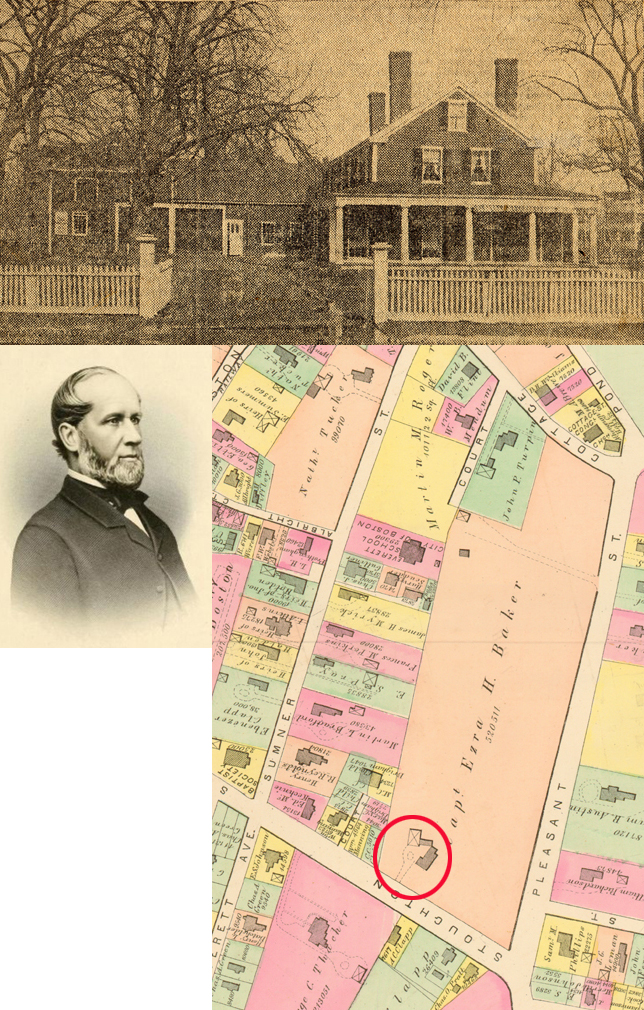
Captain Ezra H. Baker (1811-1876) owned about 12 acres of land on Pleasant Street, between Stoughton Street and Cottage Street. Today’s illustration shows his land shaded in tan, taken from the 1874 Hopkins Atlas of Dorchester.
Earlier in the eighteenth century, the land was owned by William Allen and became known as Allen’s Plain. Allen lost the property in a court judgment, and after a few owners, it was acquired in 1816, by Sarah Wentworth Morton, a celebrated poet. She and her husband, Perez, had owned a mansion on Dudley Street, and they down-sized to this property. The location of the house is shown on the map within a red circle. Wentworth Morton sold the land to William Swan in 1841. After a few more owners, it was bought by Ezra Baker in 1868.
Baker began his seafaring life with his father at the age of ten, and at the age of sixteen was put in charge of a schooner and sent to the coast of Maine to buy a cargo of lumber. He continued his career as a merchant seaman, buying and selling his own cargoes, until 1838, when he moved to Boston and entered into partnership with Alpheus Hardy, of Chatham, under the firm name of Hardy & Baker. In 1845, Charles J. Morrill, of Boston, became a member of the firm, which was then known as Hardy, Baker & Morrill. In 1848, Hardy withdrew from the business, which was thereafter known as Baker & Morrill.
Under its several names, the firm was actively engaged in many branches of foreign and domestic shipping trade and owned a considerable number of ships. The firm entered into trade with the East Indies, China, South America, San Francisco, and Mediterranean ports. As the shipping business gradually declined, the firm disposed of its vessels and became interested in several of the pioneer western railroads, notably the Union Pacific, of which Baker was a director at the time of his death, in 1876.
Baker’s Dorchester property was not his principal residence. He lived at 413 Broadway in South Boston. In 1890, the surviving Baker heirs set up a trust, called the Baker Farm Associates, the purpose of which was to develop or sell the Baker farmland in Dorchester.
